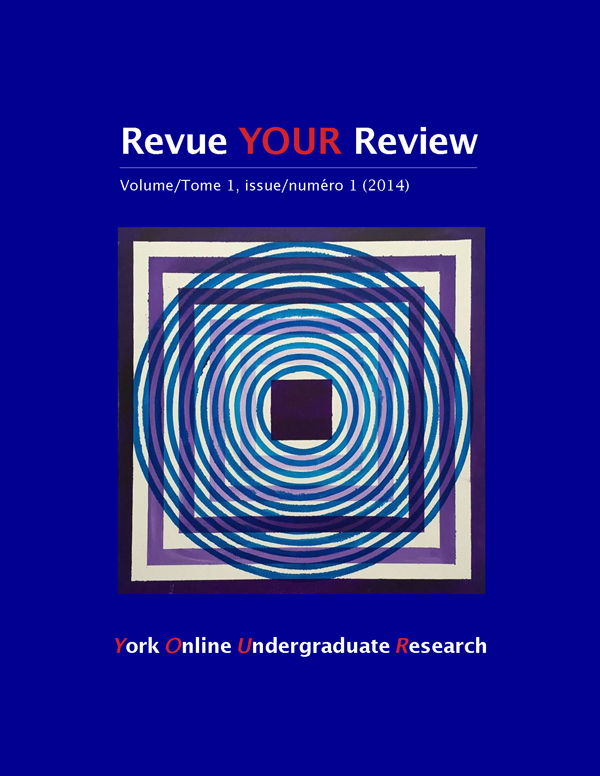Towers of Power: An Empirical Analysis of Toronto’s Central Business District
Résumé
Over the past sixty years, Toronto’s Central Business District (CBD) has become home to an ever-increasing densification of corporate office towers. Accessibility, control, power, and securitization of property has developed through the post-industrial evolution of the built environment, resulting in the exclusion of some individuals. This paper, through theoretical analysis and empirical data collection, argues that unequal access to privatized public spaces within the CBD’s office towers, outdoor plazas, and the underground PATH system reinforces class distinction and capitalist hegemony. The qualitative empirical data used within this paper were collected through observational site visits of twelve corporate office towers and plazas in Toronto’s CBD, as well as the PATH system. Through the analysis of these spaces, this paper concludes that the built environment of the CBD serves only the needs of the dominant capitalist and middle/upper-middle classes. The class distinctions and capitalist hegemony written into these built environments are reinforced through social, cultural, and physical controls of space. On a larger scale, the spatial exclusion of marginalized individuals within the urban environment speaks to a greater social and spatial inequality within the city, suggesting the need to re-evaluate systems of social, economic, and political power.Téléchargements
Comment citer
Numéro
Rubrique
Licence
Les auteurs qui contribuent à la Revue YOUR Review acceptent de publier leurs articles selon une des trois catégories de la licence 4.0 : Creative Commons Attribution 4.0 International; Creative Commons Attribution-Pas d'Utilisation Commerciale 4.0 International; ou Creative Commons Attribution-Pas de Modification 4.0 International. Tout contenu éditorial de ce site ainsi que les affiches et les résumés sont sous la licence Creative Commons Attribution-Pas de Modification 4.0 International. Pour plus d’informations, veuillez voir :
https://creativecommons.org/licenses/
Dans tous les cas, les auteurs conservent leurs droits d’auteurs et concèdent à la Revue YOUR Review le droit de première publication. Les auteurs peuvent, par la suite, conclure d’autres accords de distribution non exclusifs de la version publiée dans ce périodique (par exemple, l’afficher à un dépôt institutionnel ou le publier dans un livre ou dans un autre périodique) à condition que la reconnaissance fasse mention de la publication originale dans la Revue YOUR Review.


